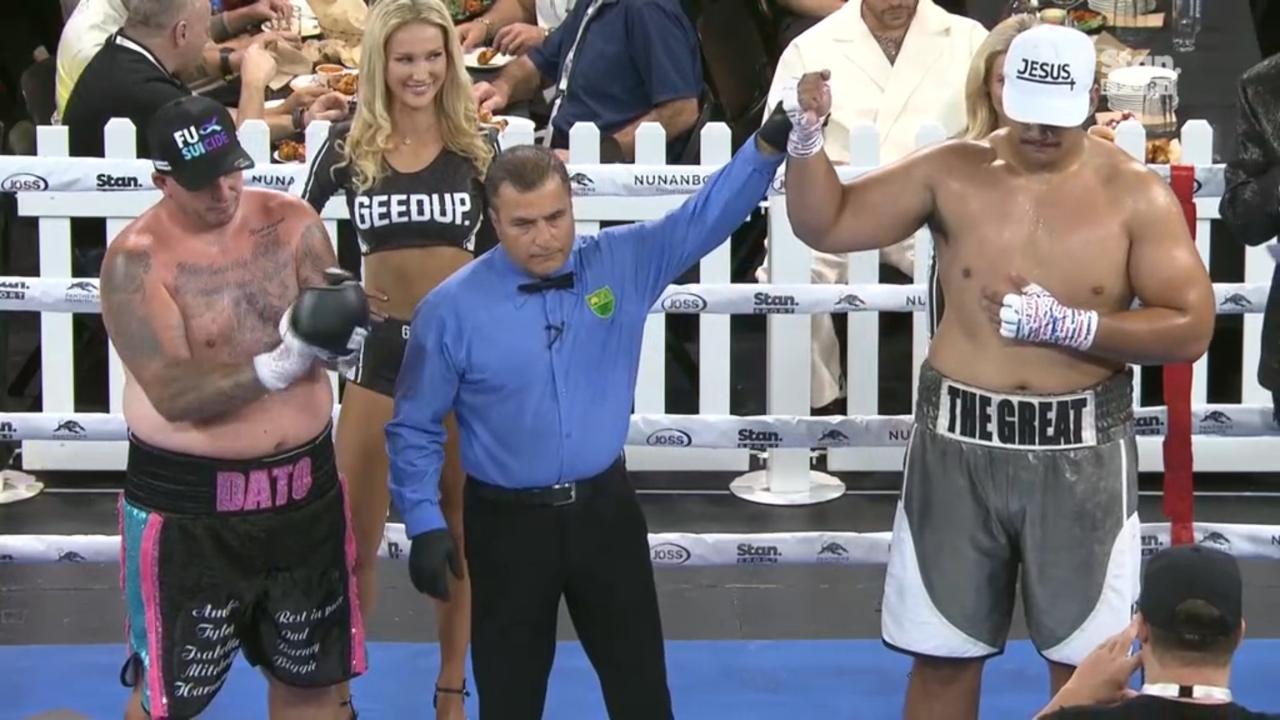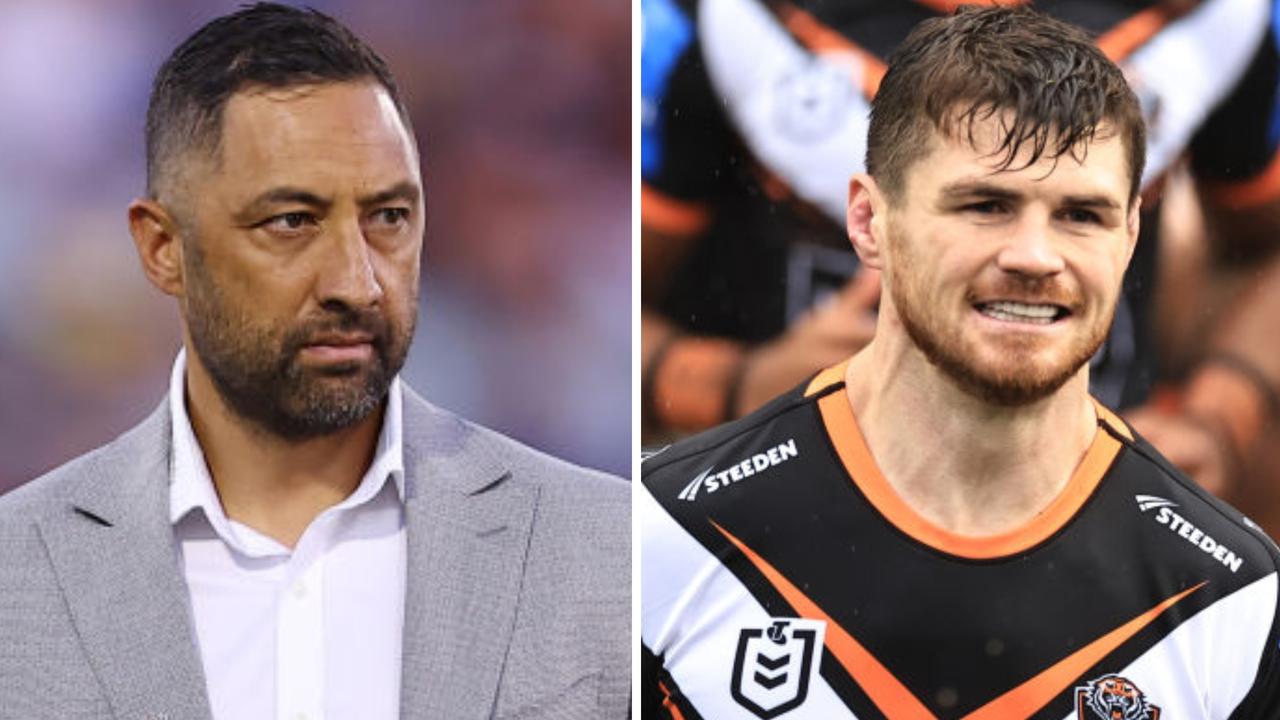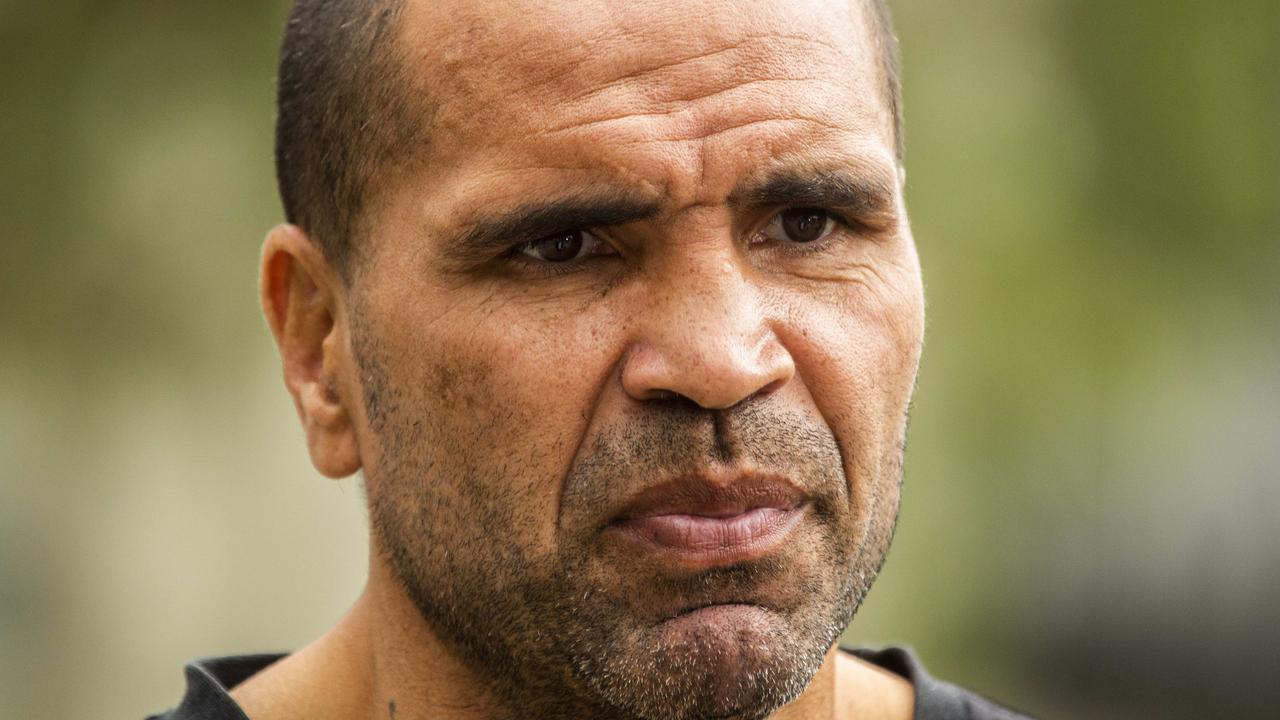NRL chief executive Dave Smith talks to Phil Rothfield about expansion, drugs in sport and those early gaffes
SPORTS Editor-at-Large Phil Rothfield caught up with the NRL's new chief executive yesterday and found him to be a highly impressive operator.

THE NRL will use the "biological passport" policy that exposed Lance Armstrong, CEO Dave Smith revealed in an exclusive Q&A with Phil Rothfield yesterday.
The code's new CEO Dave Smith outlined how rugby league will become a world leader in anti-doping as part of a new integrity unit to be set up by the end of next month.
The testing procedures will be a first among Australia's football codes in a crackdown that follows the Australian Crime Commission report linking organised crime and performance-enhancing drugs across the NRL and AFL.
"We're looking at biological passporting and it could be up to 50 of our players to start with," Mr Smith said yesterday.
"We're also looking at a new HDH test from the London Olympics, which would be a first in Australian sport."
READ THE FULL Q&A BELOW
Mr Smith said the new testing measures have the support of all 16 clubs, which have been briefed in recent days.
"Everybody in the game is pushing towards this happening," he said.
"And there's a range of compliance measures that will change. We will register all of the support staff. There will be more probity checks.
"The range of things we do, via an integrity unit whose job will be to think day in and day out about these sophisticated threats, will put the game in a much better position.
"We will have the world's best practices in anti-doping."
***
BUZZ'S FULL Q&A WITH SMITH
You're in the news again for getting Ben Barba's name wrong?
It was just an honest mistake and I'm paying the price for that. I'm really proud of the way we responded and reacted to Ben's problems and that's what I was trying to say.
Do you feel pressure about public speaking and making mistakes when you're new to the game?
I shouldn't but I do. I'm a natural sort of person. I'm a perfectionist as well. I'm my own worst critic. My notes and everything I prepared was Ben or Benny. When I met him at the indigenous camp he introduced himself as Benny. I genuinely thought I'd said Benny. Someone told me when I walked off the stage and I said "oh f". It's hard because I take this stuff seriously and it's important.
Ben's my favourite player. To meet him a couple of weeks ago was an honour. To see a youngster in that situation is something I really care about. It's about him, not about me making an "f up".
How do you feel about all the scrutiny? Initially it was the Cameron Smith line.
People really care. The game's got such a wide reach. I know that. I get that. That's why I took the job. Cam Smith was one of those things that happen under pressure. I know who Cam Smith is. I'm three weeks into the job and I've got so many names rushing around in my head. The fact that people care is what drives the game. If you think about what we've been through in the last few weeks, it's been difficult. And by the way, on the Immortals not getting invited, you were absolutely right. That's not good enough. We need to get smarter and we will.
You enjoying the job and the long hours?
I've always worked long hours. I'm thoroughly enjoying it. Everybody will think I've had a baptism of fire but I knew coming into it that would be the case. I wasn't expecting it to be first day, minus one. The scrutiny is there and I've got to make sure we're professional in the way we handle things.
Did you make a mistake going to Canberra for that press conference?
I was given a very serious briefing. You sit in front of the crime commission and it's obviously very serious. When the most significant criminal investigation unit in the country tells you something in very high-level circumstances, you take it seriously. I spoke with the commission, the ministers, the other sports and everybody took it seriously. It was unprecedented.
You probably know a bit more now. Is it is bad as they made out?
There's an ongoing investigation with ASADA and we meet with them once a week. It's their information and their investigation. Drugs in sport is obviously an issue. I'm working with them to make sure it's going as quickly as we can. Integrity appliance in sport is really crucial. Our sponsors, our fans and everybody has to have faith and trust in the game. Some of the threats being examined are very complicated. The investigation could come up with nothing or something very serious.
We will come up with the world's best practices in anti-doping. We're looking at biological passporting and it could be up to 50 of our players to start with. We're looking at a new HDH test that comes out of the London Olympics which would be a first in Australian sport. And a range of compliance measures will change.
The doctors will have more input. We will register all of the support staff. There will be more probity checks. The range of things we do, via an integrity unit, whose job will be to think day in, day out about these sophisticated threats, will put the game in a much better position. Everybody in the game is pushing towards this.
How soon could you have the blood passports introduced?
We're doing it now. We'll get this package of measures in place with the integrity unit and get started. It's all underway. My goal is to have an integrity unit set up with proper intelligence, proper data, proper surveillance, proper interaction with the other codes, in sharing science information and other practices. Proper academic input.
It's quite complicated and the impact is massive if it goes wrong. I never want to be in the situation I found myself in three weeks ago. The damage it does to your reputation is not worth it.
I'm keen to get your vision on expansion. In 10 years time, how will the game look with Perth, Adelaide, Gosford?
Fundamentally, it is a growth agenda. We've made it clear we really have to get our house in order with the existing competition and clubs by the end of 2014. We need to think carefully about where expansion takes place and where the stadium strategy comes in. The growth of population in western Sydney.
My view is 10 years down the track. We'll have a national footprint, a stronger national competition. I'm not sure if that will be one competition or more than one. The game matters to all Australians and it doesn't have to be as eastern seaboard-focused in the longer term.
Sounds like you want teams in Adelaide and Perth?
Without being specific, the game needs a national footprint. With the great passion and tribalism, you can take the game wider.
Is nine teams too many for Sydney and one team not enough for Brisbane?
Nine teams in Sydney is a lot. You need to look at the concentration in terms of demographics and growth. We'll know what the right spread is. NSW is crucial for us to have a strong presence. You have to look at all options. An obvious spot is Brisbane. There's a lot of lobbying around that.
You don't just stab at it, you need to think about it very carefully and do it off a strong base. There's a lot of work we need to do as an administration.We can build strength at the centre to support the existing clubs and make sure they are sustainable. Once we're in that spot, we start to think.
I hate the fact we've lost our Sunday afternoon grand final in the new TV deal for Channel 9's TV ratings. The punters want an afternoon grand final like the AFL. Is this all set in concrete?
I haven't gone into the detail of it and I've heard mixed opinions on it. There's the TV perspective and how many viewers are watching. And then you've got the perspective of the barbecues and the more social side of it. On balance the deal we've done with nine and our other partners, it's a good deal. I think we need to see how it plays out. If it doesn't work we need to be communicating and changing it.
What if the fans really rallied like they did last time and said we want our afternoon grand final?
The fans are everything. That feedback is crucial. We want to get closer to the fans.
So you'd consider looking at it?
We're trying to create an environment with the new TV deal where we get more people with more devices more frequently watching the game. If that doesn't work and we need to adjust it, that's what we will do.
Would you ever take a grand final out of Sydney?
More Coverage
I'd never say never. If we want to make the game more expansive and broaden the appeal of the game, we need to think carefully about where our marquee games are played.The grand final would be a massive decision ... because of the incredible passion in Sydney. But I'm all about trying to plot the path for the next 10 or 15 years.
Do you need better people at the NRL. Are there jobs on the line?
We need to strengthen the administration. We've got a growth agenda. I'll bring a discipline and a flavour I think rugby league needs. We have a big set of responsibilities and you need strong people around me. Not just strong on football but strong on commercials, strong on appliance and governance, really strong around the strategy. You will see changes from me. I can't tell you what right now. But building a strong team and a strong administration is crucial to me.




